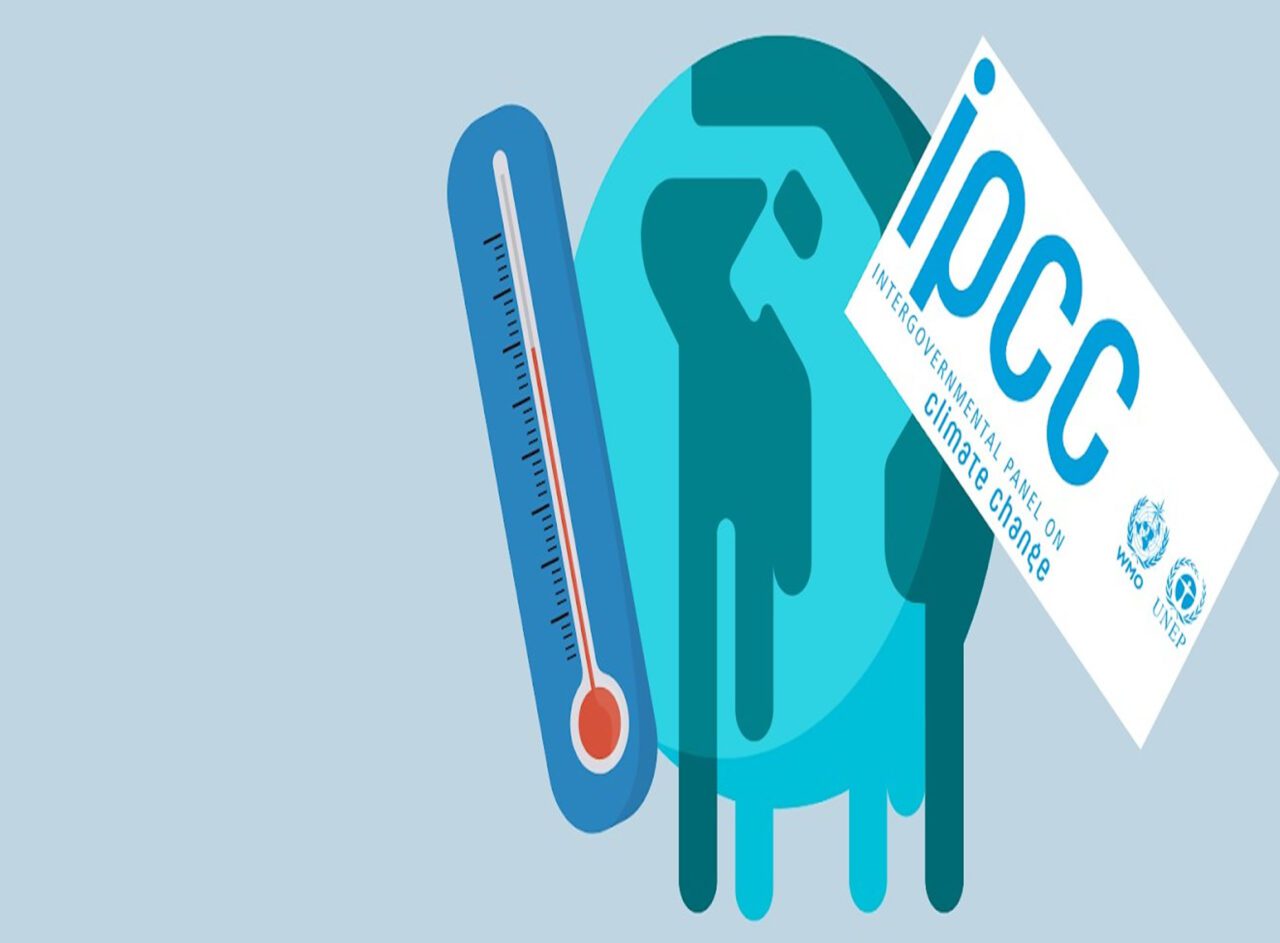Climate change is one of the most pressing issues of our time, and understanding its complexities and impacts is crucial for shaping effective policies and strategies to address it. At the forefront of this effort stands the Intergovernmental Panel on Climate Change (IPCC).
The Intergovernmental Panel on Climate Change (IPCC) is the United Nations body for assessing the science related to climate change. The IPCC is a vital international body dedicated to assessing and synthesizing the latest scientific knowledge on climate change.
In this blog, we’ll delve into what the IPCC is, its functions, and its recent contributions towards understanding climate change.
Why was the IPCC created?
Established in 1988 by the World Meteorological Organization (WMO) and the United Nations Environment Programme (UNEP), the Intergovernmental Panel on Climate Change (IPCC) serves as a crucial source of scientific information for governments worldwide. With 195-member governments, the IPCC’s primary objective is to furnish policymakers at all levels with robust scientific assessments to inform the development of effective climate policies.
IPCC reports serve as essential inputs into international climate change negotiations, providing policymakers with scientifically grounded insights to guide decision-making. By identifying areas of scientific consensus and highlighting gaps in knowledge, the IPCC informs discussions on global climate action.
Alt Text: Photo to young boy dressed in a hero suite making an announcement

The primary objective of the IPCC is to provide policymakers with regular assessments of the scientific basis of climate change, its potential impacts, and options for adaptation and mitigation. These assessments are conducted through a series of comprehensive reports, which undergo rigorous peer review by experts and governments.
Drawing on the expertise of thousands of individuals worldwide, the IPCC assesses a vast array of scientific literature annually. Experts volunteer their time as IPCC authors, meticulously reviewing scientific papers to compile comprehensive summaries on climate change drivers, impacts, future risks, and mitigation strategies.
Assessments and Reports
The IPCC produces comprehensive assessment reports approximately every six to seven years, with each assessment cycle spanning multiple years. These reports provide a synthesis of the latest scientific research and knowledge on climate change and are widely regarded as the most authoritative sources of information on the subject.
Since its establishment in 1988, the IPCC has had six assessment cycles, resulting in the publication of six Assessment Reports. These reports stand as the most extensive scientific assessments of climate change globally. Additionally, the IPCC has generated various Methodology Reports, Special Reports, and Technical Papers in response to requests for specific scientific and technical information from entities such as the United Nations Framework Convention on Climate Change (UNFCCC), governments, and international organizations.
Each assessment report undergoes a rigorous drafting and review process, involving hundreds of experts and governments from around the world. The resulting reports are divided into several sections, including summaries for policymakers, technical summaries, and detailed chapters covering specific topics.
These reports serve as invaluable resources for policymakers, governments, and the global community at large in estimating greenhouse gas emissions. However, the IPCC does not conduct original research but instead synthesizes existing peer-reviewed literature to provide a comprehensive understanding of climate change science.
What does the IPCC latest report (Sixth Assessment Report (AR6)) say?
The Intergovernmental Panel on Climate Change (IPCC) recently released its Sixth Assessment Report (AR6), comprising three main working group reports and a synthesis report. Working Group I’s contribution, published in August 2021, emphasized the unequivocal role of human activity in warming the atmosphere and its unprecedented impact on the planet. Working Group II’s report, released in February 2022, highlighted the urgent need for adaptation to mitigate the adverse effects of climate change on ecosystems and human communities.
In April 2022, Working Group III’s report assessed global emissions sources and progress on mitigation efforts, underscoring the necessity of deep emissions reductions to limit warming to 1.5°C.
The AR6 Synthesis Report, published in March 2023, serves as a comprehensive summary of the findings from all working groups, informing global climate action under the United Nations Framework Convention on Climate Change (UNFCCC).
What is the Structure of the IPCC?
The IPCC operates through its plenary sessions, where representatives of member governments convene to elect a bureau of scientists and oversee the organization’s activities. Each member designates a National Focal Point responsible for nominating experts, contributing to governance decisions, and facilitating national engagement with the IPCC.
To achieve its objectives, the IPCC is structured into three Working Groups and a Task Force, each focusing on distinct aspects of climate change research and response strategies.
What are the working groups?
- Working Group I (The Physical Science Basis of Climate Change): Working Group I concentrates on understanding the physical science behind climate change. Its primary goal is to assess the scientific basis of climate change, including the causes, mechanisms, and potential future scenarios. By synthesizing and analyzing peer-reviewed literature, this group provides invaluable insights into the fundamental aspects of climate science.
- Working Group II (Climate Change Impacts, Adaptation, and Vulnerability): Working Group II is dedicated to examining the impacts of climate change on various systems and sectors, assessing vulnerabilities, and exploring adaptation strategies. This group evaluates how climate change affects natural and human systems, including ecosystems, societies, and economies, and identifies measures to enhance resilience and adaptability.
- Working Group III (Mitigation of Climate Change): Working Group III focuses on strategies for mitigating climate change by reducing greenhouse gas emissions and enhancing carbon sinks. It assesses the feasibility, effectiveness, and implications of different mitigation measures, including policy options, technological innovations, and behavioral changes. By providing policy-relevant information, this group assists policymakers in developing and implementing mitigation strategies.
Taskforce and Task Groups
- Task Force on National Greenhouse Gas Inventories: The Task Force on National Greenhouse Gas Inventories plays a critical role in developing and refining methodologies for calculating and reporting national greenhouse gas emissions and removals. By establishing standardized approaches and guidelines, this task force facilitates consistent and transparent reporting of greenhouse gas inventories across countries, enabling comparisons and tracking progress towards emission reduction goals.
- Task Groups and Special Initiatives: In addition to the core Working Groups and Task Force, the IPCC may establish Task Groups or special initiatives to address specific topics or issues. These temporary groups focus on emerging issues or areas requiring specialized expertise. For instance, the establishment of a Task Group to improve gender balance and address gender-related issues within the IPCC underscores the organization’s commitment to diversity and inclusivity.
What Impact has the IPCC had over the years?
The influence of the IPCC extends far beyond the realm of scientific research. Its assessments serve as the foundation for international climate negotiations, informing the development of policies and agreements aimed at addressing climate change. The IPCC’s reports have played a crucial role in shaping landmark agreements such as the Kyoto Protocol and the Paris Agreement, providing policymakers with the knowledge and evidence needed to take meaningful action.
Moreover, the IPCC’s assessments have helped raise public awareness of the urgency of climate change and the need for collective action. By translating complex scientific findings into accessible language, the IPCC has empowered individuals, communities, and organizations to advocate for climate action and support initiatives aimed at reducing greenhouse gas emissions and building resilience to climate impacts.
Challenges and Future Directions
Despite its significant achievements, the IPCC faces several challenges as it continues its work in the 21st century. These include the need to address gaps in scientific knowledge, improve communication and outreach efforts, and ensure greater diversity and inclusivity within the organization.
Looking ahead, the IPCC is poised to play a central role in advancing global efforts to address climate change. As the world grapples with the escalating impacts of a warming planet, the need for robust, evidence-based guidance has never been greater. Through its steadfast commitment to scientific integrity and collaboration, the IPCC remains a crucial ally in the fight against climate change, offering hope for a more sustainable and resilient future for generations to come.
Found it interesting and would like more in the mail?




